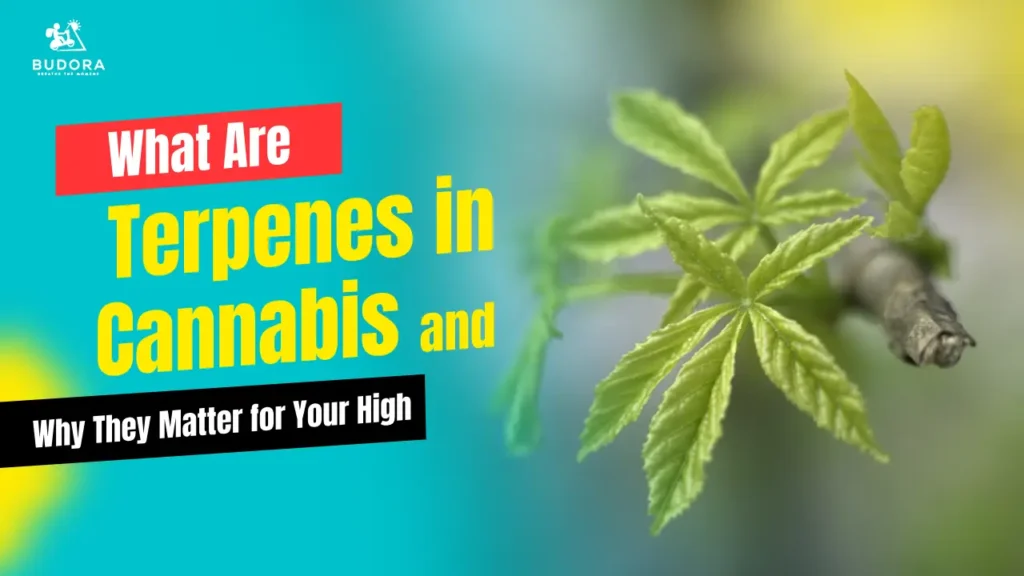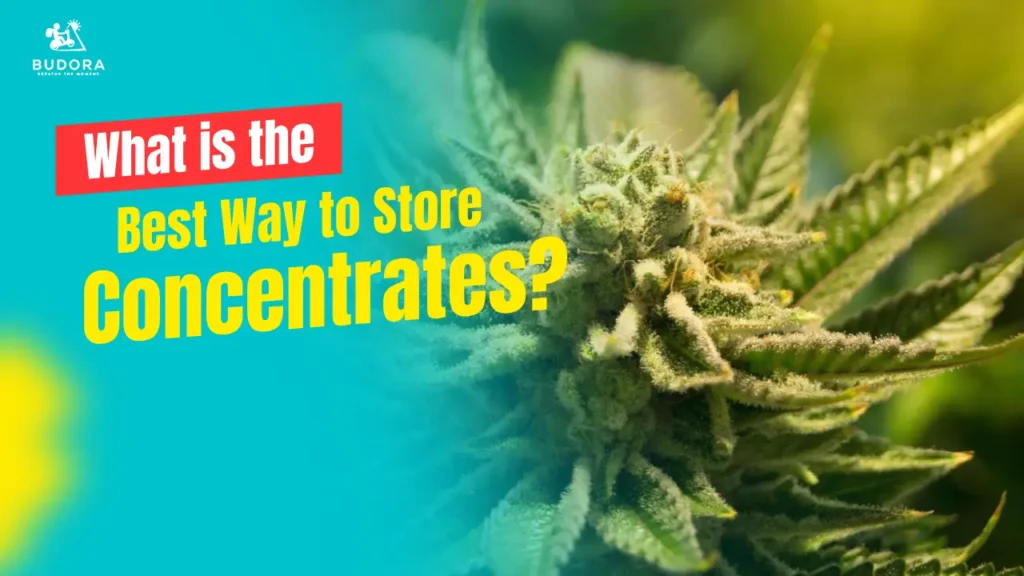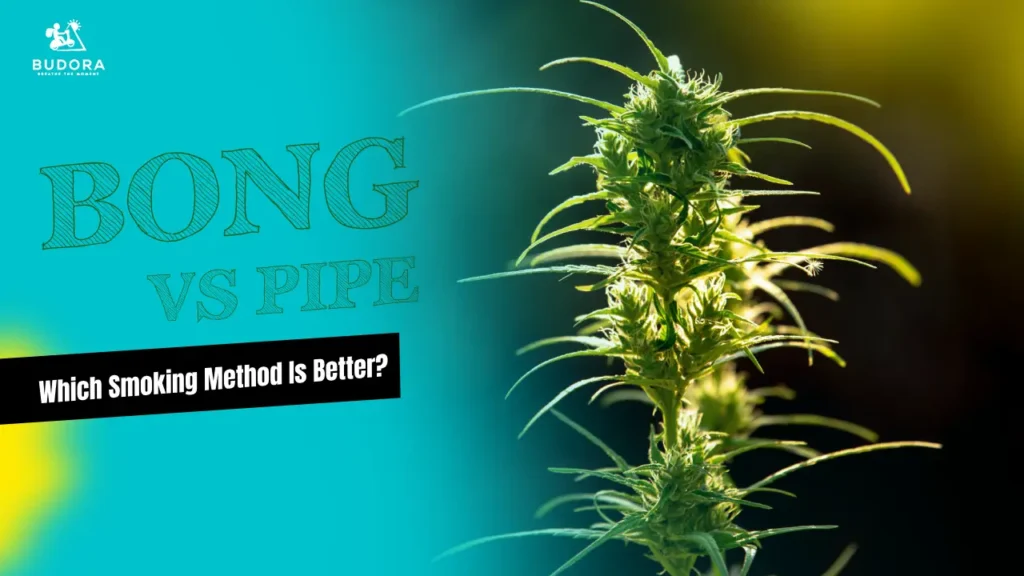Blog
Why Does Weed Give Me Anxiety After Years of Smoking? How Have Things Changed?
- Budora Team
- No Comments
- Cannabis WeedBlogs
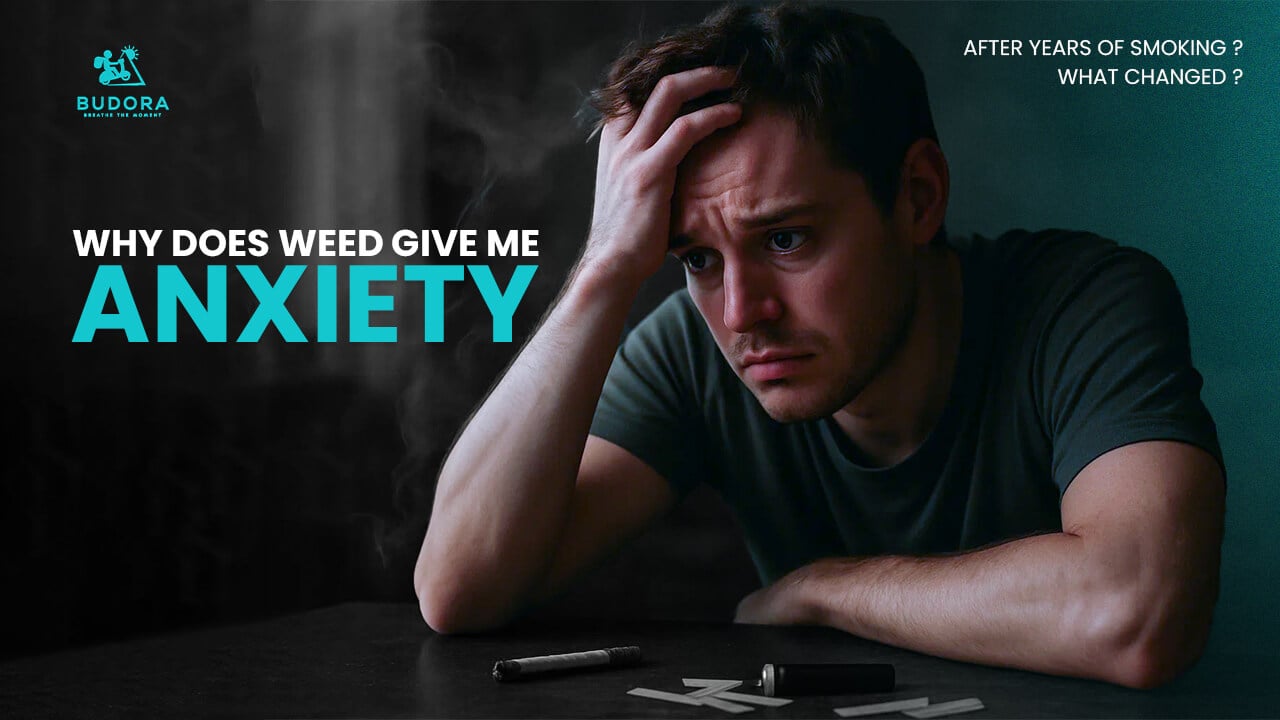
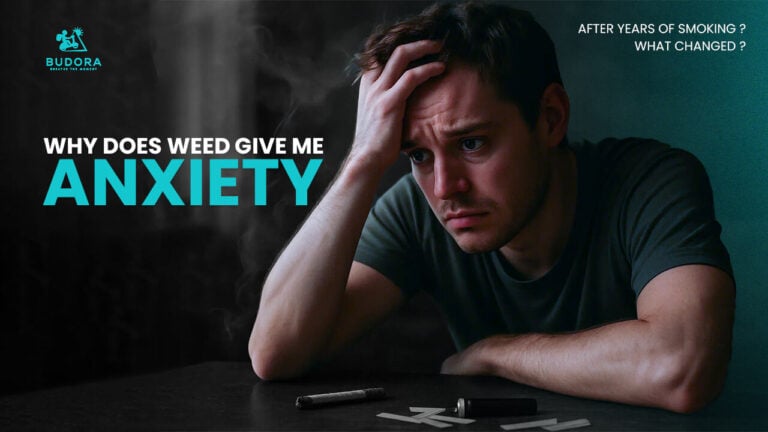
For many long-time cannabis users, weed has been a source of relaxation, creativity, and stress relief. But sometimes, after years of comfortable use, things can suddenly change. You might find yourself asking, “Why does weed give me anxiety now, when it never used to?”
If this sounds familiar, you’re not alone. Anxiety after years of smoking weed is a surprisingly common experience. Let’s break down why this happens, what factors contribute to it, and what you can do about it.
Major Insights
- Changing Body Chemistry: Long-term cannabis use can alter brain chemistry, making you more sensitive to THC’s effects over time.
- Tolerance Shift: Regular smokers may develop tolerance to the calming effects but remain vulnerable to anxiety-triggering responses.
- Strain & Potency Matters: High-THC strains or edibles can trigger anxiety, especially if your body has changed how it processes cannabinoids.
- Age & Health Factors: As you get older, shifts in hormones, metabolism, or mental health may increase susceptibility to cannabis-induced anxiety.
- Underlying Stress or Mental Health Issues: Weed can amplify hidden anxiety or stress that wasn’t noticeable before.
- Set & Setting Influence: Using cannabis in stressful environments, or with anxious thoughts in mind, can worsen anxiety symptoms.
- CBD vs. THC Balance: Lack of CBD in modern high-potency strains may reduce the “buffer” against THC-related anxiety.
- Possible Overuse: Chronic heavy smoking may disrupt the endocannabinoid system, increasing chances of panic, paranoia, or restlessness.
- Mind-Body Awareness: Recognizing triggers (caffeine, lack of sleep, dehydration, or stressful life events) can help manage anxiety after smoking.
- Alternatives & Solutions: Lowering dosage, choosing CBD-rich strains, mindful use, and taking tolerance breaks can reduce anxiety risks.
The Effects of Weed on the Brain
When you consume weed, its main psychoactive compound, THC (tetrahydrocannabinol), binds to cannabinoid receptors in the brain’s endocannabinoid system. These receptors play a role in regulating mood, memory, stress response, and perception of pleasure or relaxation. By overstimulating these receptors, THC can trigger a euphoric “high,” but in some cases, it may also disrupt normal brain signaling. This disruption can increase heart rate, heighten awareness, or intensify thought effects that sometimes lead to feelings of anxiety or paranoia, especially with prolonged use or higher doses.
What Anxiety From Weed Feels Like
Anxiety from cannabis doesn’t always look the same, but common symptoms include:
- Racing thoughts or paranoia
- Increased heart rate and chest tightness
- Feeling restless or “trapped in your head”
- Heightened awareness of physical sensations
- Panic attacks in severe cases
If these sound familiar, it’s a sign your relationship with weed may be shifting.
Why Does Weed Give Me Anxiety After Years of Smoking?
This is the central question: why does weed give me anxiety after years of smoking if I used to feel calm and relaxed? Several factors can explain this shift:
Changes in Brain Chemistry
Long-term cannabis use can subtly alter your brain’s dopamine and serotonin levels. With time, your body may respond differently to the same amount or type of THC. If your system becomes overly sensitized or desensitized in the wrong way, anxiety may begin to surface.
Tolerance & Higher Doses
As tolerance builds, users often smoke more or switch to higher-potency products—like concentrates or edibles. This spike in THC intake may be too intense for your nervous system, triggering weed-induced anxiety even if smaller doses never bothered you.
Age & Mental Health Evolution
As you age, your mental health landscape changes. New stressors—like work, relationships, trauma, or hormonal shifts—can make you more sensitive to substances. A strain that felt relaxing in your 20s might feel overwhelming in your 30s or 40s.
Product Changes: THC vs. CBD
Today’s cannabis is stronger than ever, with THC levels often exceeding 20-30%. If you’re using a new brand, vape pen, or hybrid strain, it might contain more THC and less CBD, reducing the calming effect and increasing anxiety potential.
Tip: Try high-CBD or balanced strains from Budora.net to offset anxiety while still enjoying mild euphoria.
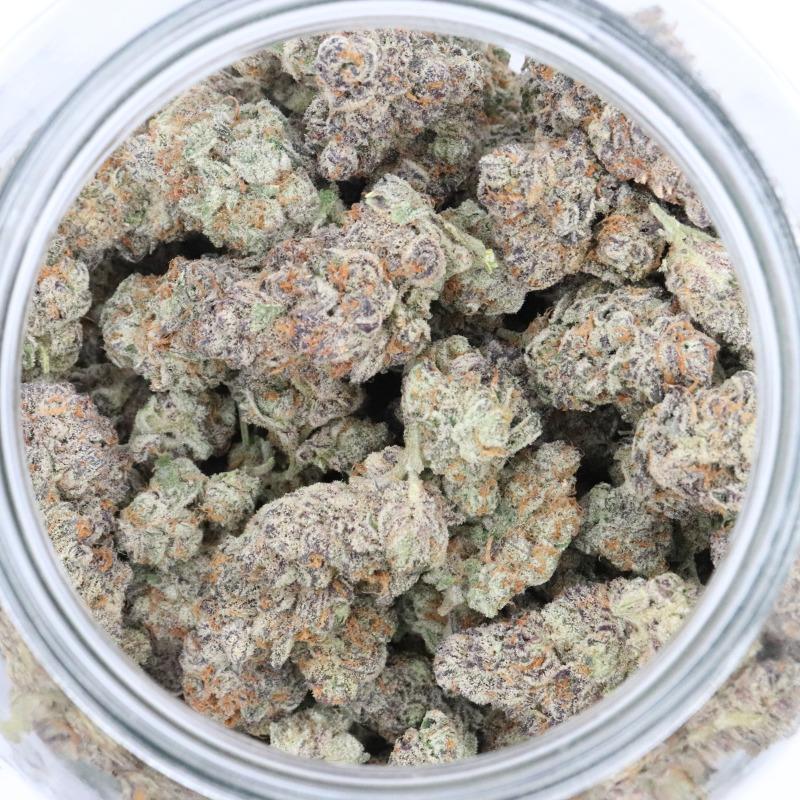
Factors in Your Routine That Fuel Cannabis Anxiety
Certain lifestyle factors can make anxiety worse after smoking weed, even if you’ve been using it for years. These triggers often interact with cannabis, intensifying its effects and making you feel more restless or uneasy.
- Lack of Sleep: Being sleep-deprived heightens stress hormones, making THC more likely to trigger anxiety.
- Caffeine Intake: Combining weed with high doses of coffee or energy drinks can overstimulate the nervous system.
- Stressful Environment: Using cannabis in chaotic or uncomfortable settings may worsen paranoia.
- Poor Diet & Dehydration: Low blood sugar or dehydration can amplify jittery or anxious feelings.
- Mental Health Struggles: Existing stress, depression, or unresolved anxiety can surface more strongly with cannabis use.
- Overstimulation (Tech & Social Media): Constant screen time and information overload may intensify post-high anxiety.
Sativa vs. Indica: Does Strain Type Matter?
Absolutely. The type of cannabis strain you choose can greatly influence whether you feel relaxed or anxious.
- Sativa strains: Often provide an uplifting, cerebral high. While great for creativity and daytime use, they can sometimes heighten anxiety or paranoia in sensitive users.
- Indica strains: Typically more calming and body-focused, making them a better choice for relaxation, stress relief, and sleep support.
- Hybrid strains: Combine both, and their effects depend on the THC-to-CBD ratio and dominant genetics.
If you’re struggling with weed-induced anxiety, try:
- Low-THC, high-CBD strains for a gentler experience
- Indica-dominant or balanced hybrids for relaxation
- Edibles or tinctures with slower onset and longer-lasting effects (also see our guide on Cannabis for Sleep)
How to Manage Weed-Induced Anxiety
When Should You Seek Help?
If weed-related anxiety starts disrupting your daily life or peace of mind, it may be time to get professional support.
Key Points:
- Frequent anxiety or panic after smoking
- Worry or unease even when sober
- Trouble sleeping or mood changes
- Anxiety affecting work, school, or relationships
- No relief from adjusting dosage or strains
Final Thoughts
Weed giving you anxiety after years of smoking is more common than you might think. Your body, mind, and environment change over time and so does your relationship with cannabis. By adjusting your consumption habits and being mindful of your mental health, you can still enjoy the benefits of cannabis without the panic.
FAQs
Why does weed suddenly make me anxious after years of smoking?
Can THC cause panic attacks after years of use?
How can I reduce anxiety when smoking weed?
Does age make you more sensitive to weed?
Should I quit weed if it gives me anxiety?
Like this article?

Budora Team
OTHER ARTICLES YOU MAY LIKE

